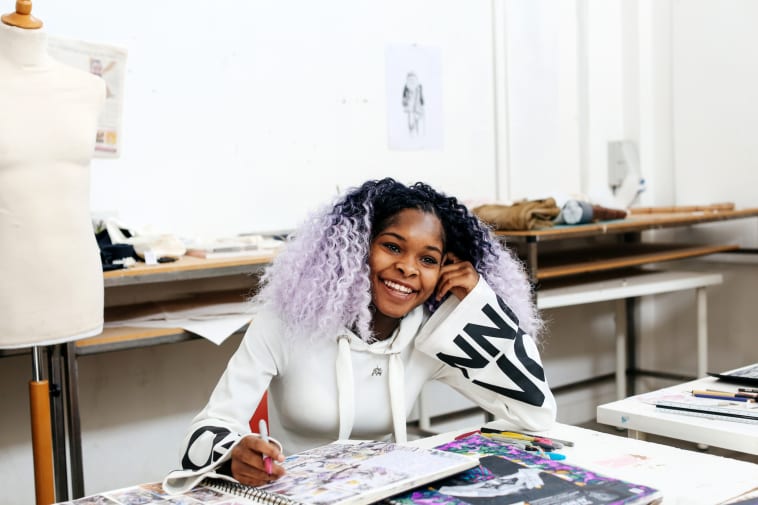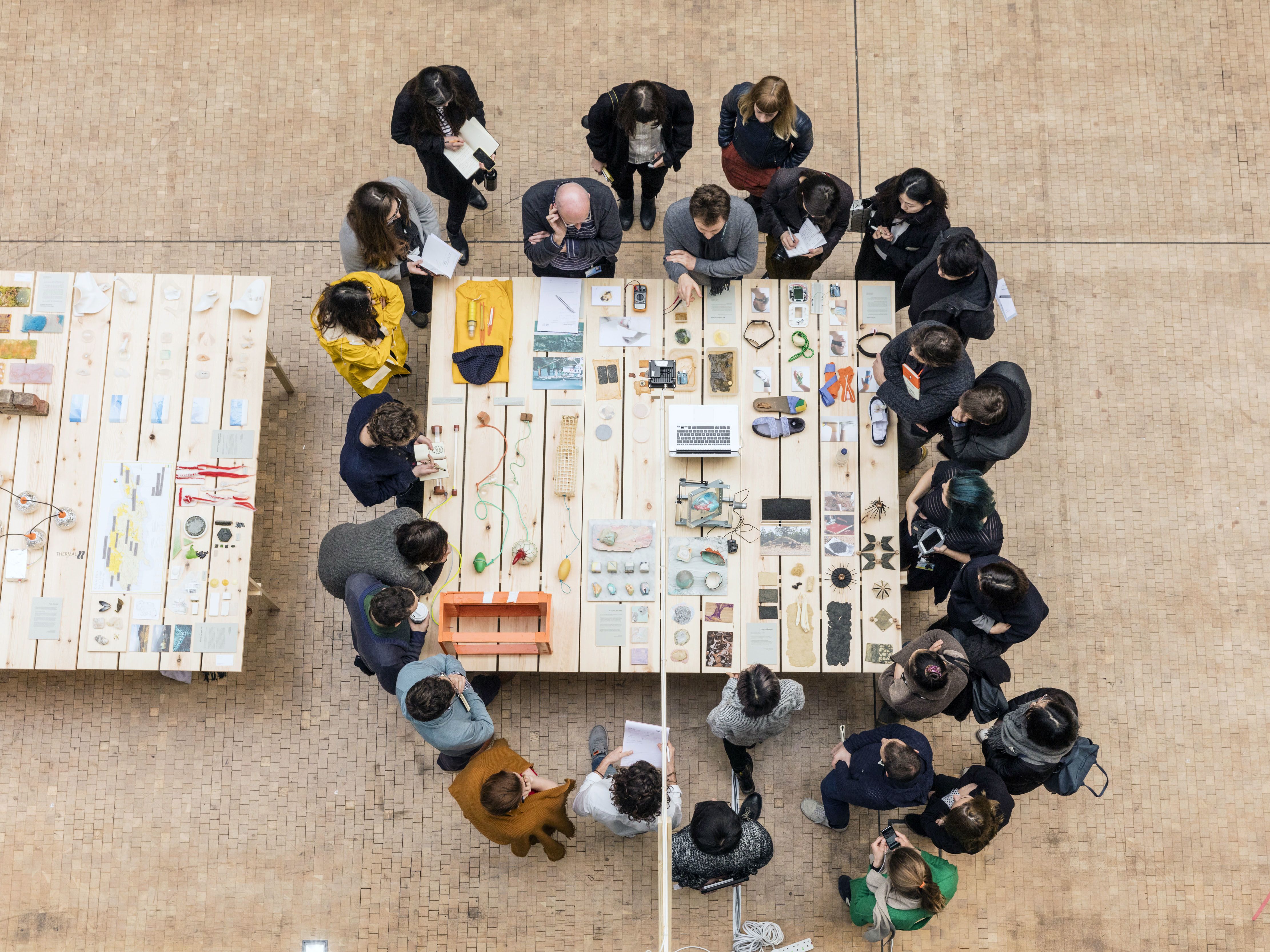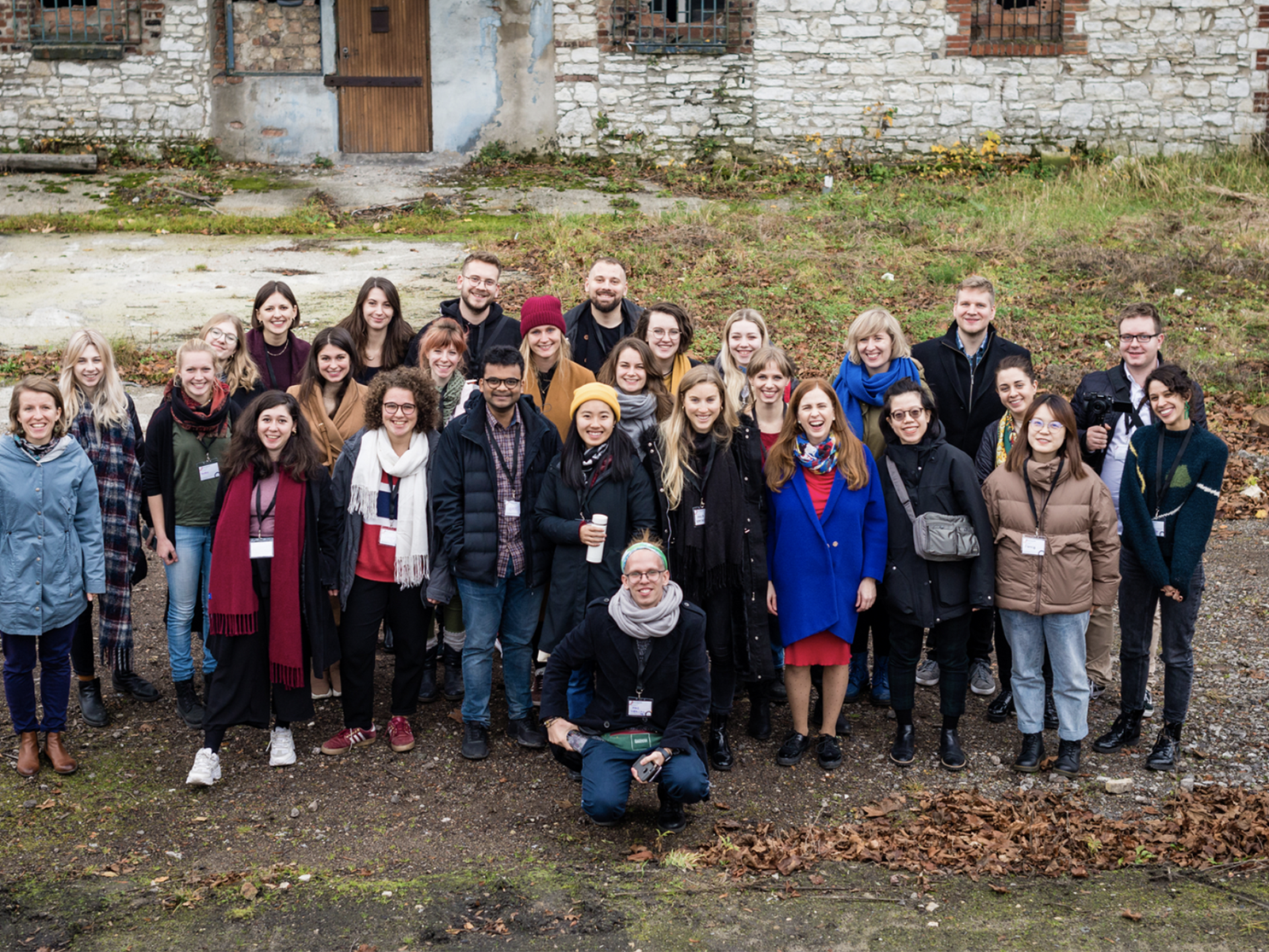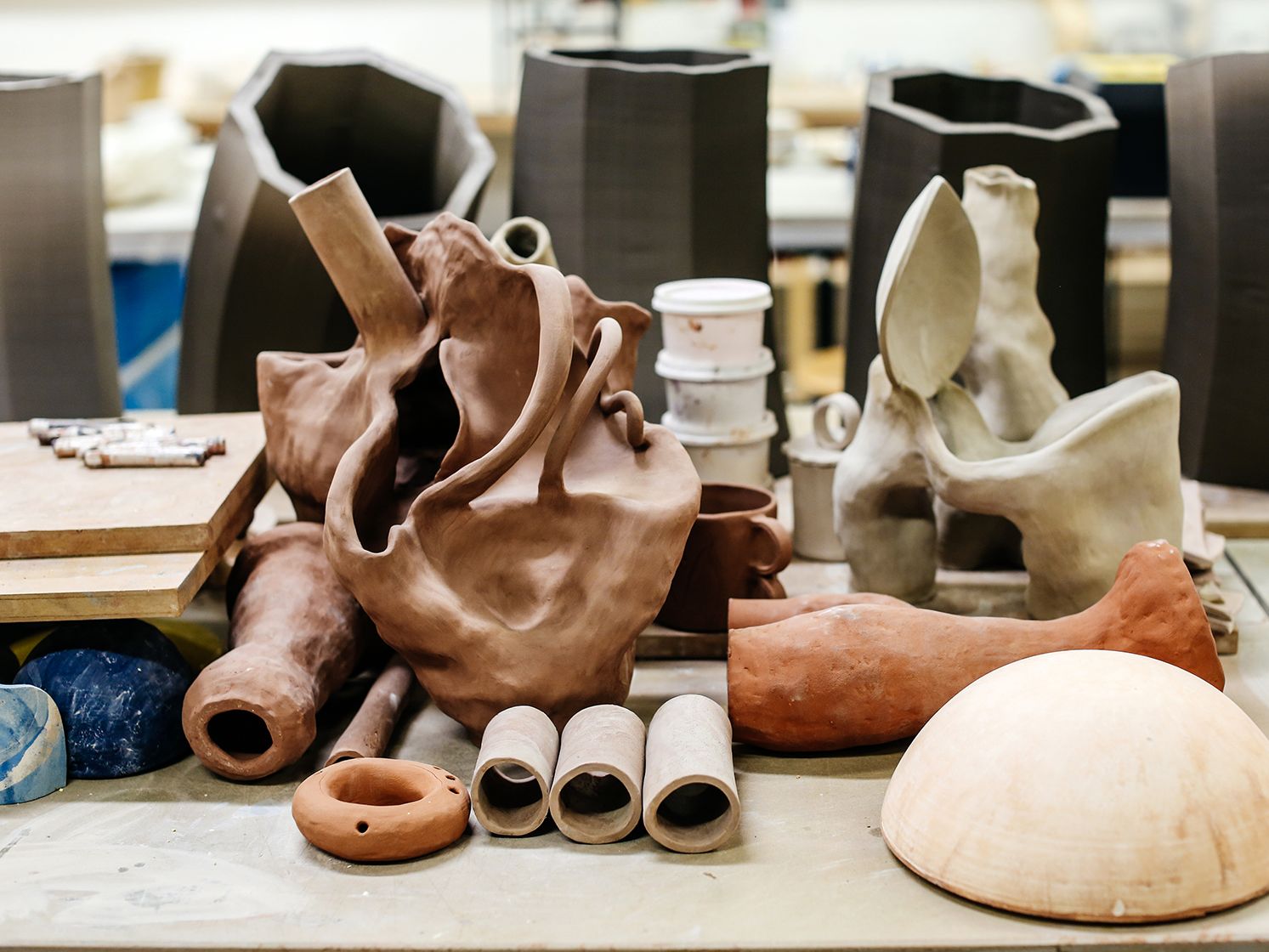In October 2020, UAL joined forces with the Royal Northern College of Music and the Central School of Speech and Drama to launch the StART Entrepreneurship Programme, a knowledge exchange initiative funded by Office for Students and Research England designed to support the professional development of students within the creative arts. During its first year, the project has engaged over 1,000 students and graduates in enterprise workshops, coaching sessions and industry talks, gearing them up to develop their own business ideas.
The UAL team working on StART includes academics and members of staff from diverse disciplines, and it’s led by Tessa Read, Deputy Head of Careers & Employability at UAL; Marcus O’Dair, Associate Dean for KE and Enterprise at Camberwell, Chelsea and Wimbledon Colleges; and Dan Henderson, Associate Dean for Enterprise and Fashion Business at London College of Fashion.
We caught up with Marcus, Tessa and Beki Gowing, Lecturer in Fashion Enterprise at LCF, to find out more about the objectives of this programme and how they’re empowering creatives to become entrepreneurs.
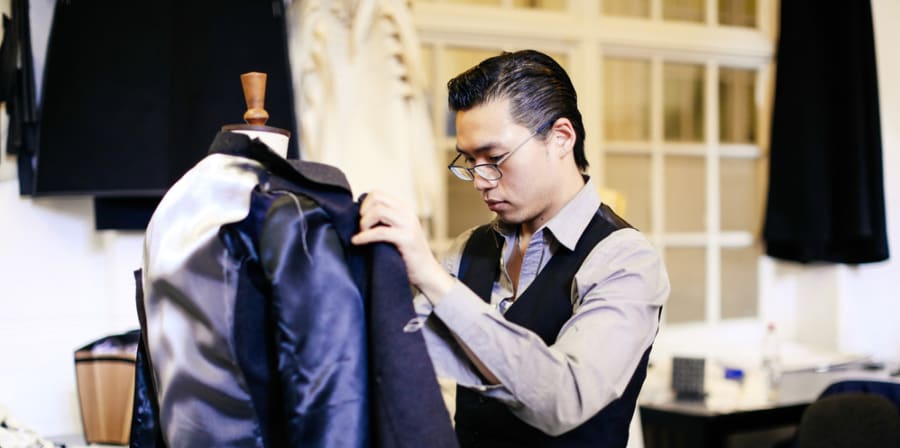
You've launched the StART programme to support students who want to follow an entrepreneurial path. How are you implementing this at UAL?
Marcus: We’ve developed a programme of activities to engage with students across the University. At London College of Fashion, for example, we’ve embedded enterprise workshops and one-to-one business coaching sessions into the academic curriculum of some courses. We also have co and extra-curricular activities implemented across the Colleges, including students working on live brief projects, industry talks and business support sessions.
Beki: At LCF, the idea of in-curriculum activities is to offer enterprise education as part of some of our courses, focusing on concepts like networking, audience identification and engagement, marketing strategies, sustainable supply chains, negotiation and communication, and self-employed finance. Through the StART project, we’ve also introduced the Enterprise Pathway for final year students on the BA Fashion Buying & Merchandising and the BA Fashion Marketing courses, where they get to work on a full business plan as part of their final major project. We’re using the Fashion Futures 2030 toolkit, developed by Centre for Sustainable Fashion, to teach students how to develop flexible and adaptable business ideas.
What are some of the most common questions or concerns you get from students about pursuing their business ideas?
Tessa: It’s quite wide ranging, but mainly understanding their value as entrepreneurs and the value of their work. Pricing is quite a big area of question and concern for our students, because it's all about how you thrive as a creative and make money from your work, as opposed to just producing work that does not make a financial profit.
Marcus: With StART, we have a particular focus on working with students who are underrepresented in the creative economy, and it’s been interesting to see which students self-identify as entrepreneurs. For some, the term represents people like Mark Zuckerberg and people who look like him and work in tech start-ups, for example, but that’s not what we’re talking about.
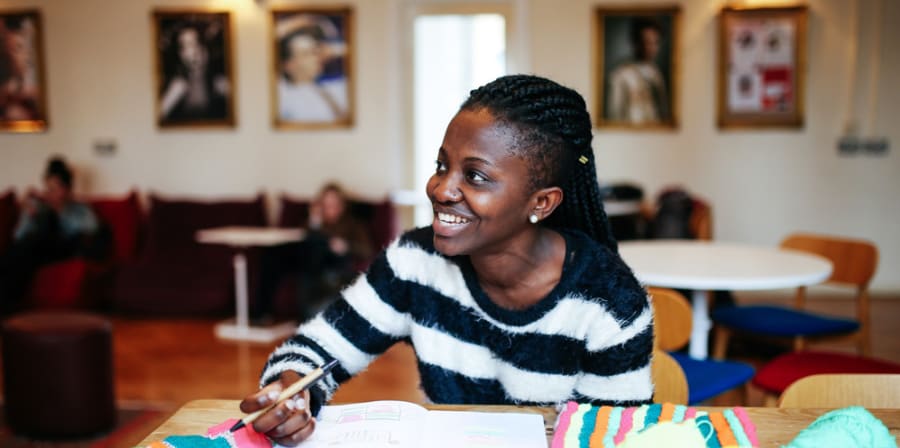
How are you changing that narrative and promoting a more inclusive idea of entrepreneurship through StART?
Marcus: Part of the challenge is that creatives from underrepresented groups don't always identify themselves as entrepreneurs. Some of the work we’re doing in extra-curricular terms is to help students and graduates see themselves as a potential business owners and founders, like the recent session we hosted with Ama Afrifa-Tchie about diversity and inclusion in creative start-ups. That way, students can make an informed decision about whether that’s a direction they want to take.
Tessa: Some students have already been involved in family business or have set something up but haven’t used the word entrepreneurial. As Marcus said, it’s quite an alienating word that conjures up the notions of people like Richard Branson or Alan Sugar, so we want to redefine what entrepreneurship means in a creative capacity. Students are naturally enterprising but sometimes they don’t recognise it within themselves, so this project is about bringing that mindset to the forefront.
Marcus: Entrepreneurial skills have always been crucial for the creative sector, but they’re going to be even more important as we move into the post-covid era, given the climate into which our students are going to be graduating.
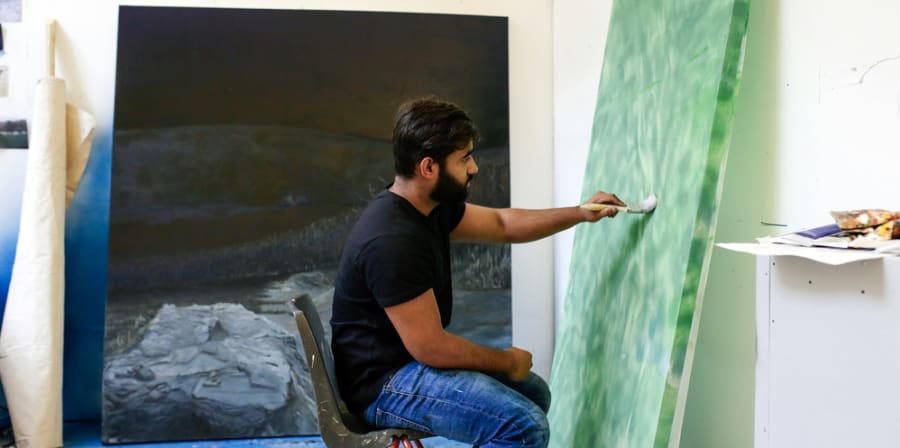
Some of our students will be graduating during a very uncertain time for the creative industries. How are you preparing them to face those challenges and embrace new opportunities?
Tessa: StART is all about building up enterprising mindsets, so we want to steer away from this idea that entrepreneurship is only successful in the area of tech — students doing Fine Art or Performance, for example, need to be as encouraged and empowered as those interested in Artificial Intelligence or Fashion Tech, regardless of the challenges or the opportunities. We're here to help them work out what it is they want to do so they can fulfil their own potential, without being prescriptive.
Marcus: There are a lot of technological opportunities opening up with machine learning and immersive tech, or a lot of people share my interest in blockchain, for example. But, equally, we have a lot of students working at the opposite end of the spectrum of creative practices. This project is not only about the Fourth Industrial Revolution, it’s not only about high growth potential. We’re also here to help those who want to do something with very traditional forms of making, and we’re really keen to support people at both ends of the spectrum.
Beki: Some of the entrepreneurial competencies we’re teaching through StART are relevant far beyond the creative economy as well, they’re highly transferrable. As Tessa and Marcus mentioned, it’s about helping students to think broadly about how their interests, passions, skills and knowledge can be applied, and aligning that with their own values and ambitions.
UAL was recently ranked top university in the UK for producing entrepreneurs. Why do you think it’s important for the University to support students with their business ideas?
Marcus: The creative economy is full of SMEs, microbusinesses and freelancers. Given the nature of the subjects our students study at UAL, it’s very likely they will be setting up a business of some kind when they leave, even if it’s just part-time on the side. With that in mind, I think it’s really important we do what we can to give them the best possible chance to survive and thrive with those businesses. As well as bringing excellence in teaching to the forefront, we’re trying to make sure our students also have broader entrepreneurial skills and knowledge to complement their practices.
Beki: Throughout the years, we have learnt that teaching networking skills is a powerful way of empowering students to pursue their business ideas. It encourages them to appreciate that successful businesses use partners and networks to thrive, and to take ownership to find their own networks to do this. We work closely with industry, inviting SME founders – many of them UAL alumni – to speak to our students about their work and teach them about the practicalities of launching a creative business.
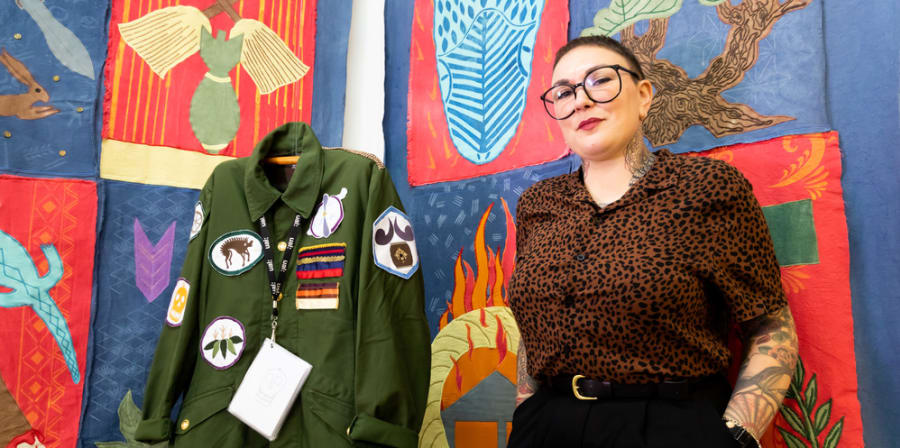
What piece of advice would you give to students and graduates thinking about launching their own business or becoming a freelancer?
Tessa: There are a lot of opportunities taking place throughout the year, from workshops, 121s and live briefs to funding opportunities and events. Get involved while you are still at UAL, don’t wait until you graduate. Get in contact with our Career and Employability colleagues, they’re all here to support you and point you in the right direction.
Marcus: Students can sometimes be worried that they don’t have this genius idea before they can even start talking about it. Remember hardly anyone has the perfect idea at first, you probably need to go through some new iterations and that’s okay. Start the conversation now!
Beki: My advice would be to think about what is most important to you — find something you really care about that makes you feel excited. Running a business can be challenging, and there are thousands of other people out there doing similar things. You need to know what makes your business different, and care enough about it to keep on working on it through the difficult times. Freelancing and starting up can feel very lonely, but finding a support network who you can talk to, share ideas with, and possibly collaborate with can make all the difference.
Find out more
- The StART Entrepreneurship Programme will begin its second phase of the project in the new academic year, with the launch of the KickStART Creative Lab in November 2021 and hosting the final symposium in May 2022.
- If you're a creative entrepreneur and would like to share your experience with our students and graduates, get in touch with Ava from the StART project team: ava.podgorski@rncm.ac.uk
- Explore our Business Partnerships and learn how you can collaborate with UAL.

